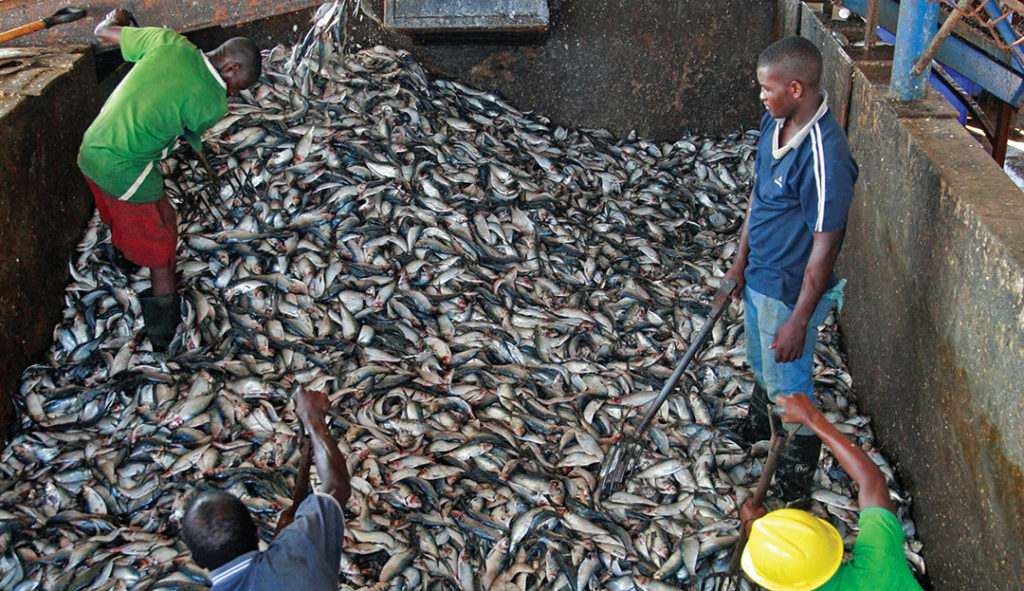AGENCE FRANCE-PRESSE
Angola is working to diversify its oil-dependent economy. One natural and readily available resource is fish, but a lack of equipment and know-how has meant the industry has struggled.
President Joao Lourenco took office in September 2017 promising to deliver an “economic miracle” that would transform the Southern African nation, where the United Nations says more than half of the population lives on less than $2 a day.
The collapse in 2014 of the price of crude oil, which provides 70 percent of all revenues and nearly all hard currency, put immense pressure on the country to diversify.
Lourenco is betting that the 1,600 kilometers of Atlantic coast could provide a fishing bonanza.
Fish oil is highly sought after by the cosmetics and pharmaceutical industries, and fishmeal is used by farmers as animal feed.
Fishing Minister Victoria de Barros previously announced plans to build a new port with refrigerated storage in Tombwa at a cost of $23.5 million.
The government is seeking to increase the annual fish catch by 16 percent over the next four years to 614,000 metric tons. Meanwhile, it is aiming for a 50 percent increase in fishmeal production to 30,000 metric tons over the same period.
Reducing oil dependence is proving to be a tough task for a country that has been heavily dependent on the black gold for decades.
“We have a fish industry, but we don’t have the capacity to meet international demand,” said Jose Gomes da Silva, the government director of fishing in the coastal city of Benguela.

